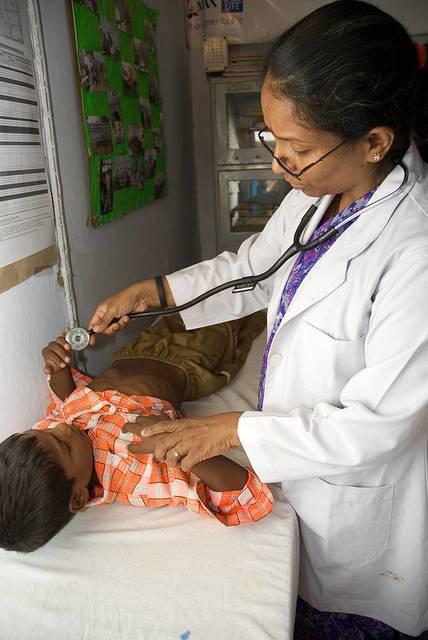
HP inc knows a thing or two about poverty in India. It's been at the forefront of an effort lately to eradicate illiteracy in India's small towns, where residents often suffer from a cyclical challenge of poor access to education, limited job options and decimating malnutrition.
Last February the company rolled out the first of several buses designed specifically to combat that challenge. The World on Wheels project, a joint project of HP and SRF Foundation, made its maiden journey last February when the company unveiled the first bus containing 48 self-contained digital inclusion learning labs. Each lab is internet-ready and can be adapted for a variety of learning modules, including business training for entrepreneurs, e-learning and other services. The 48 buses hope to reach as many as 6,400 villages and 15 million people in the next 6 years.
And it's small rural villages like Harisal, deep in the undeveloped forests of central India, far from cities like Mumbai and new Delhi that will benefit from HP's ingenuity. Harisal, in the state of Maharashtra, is known for its poor literacy rates and high levels of malnutrition. The state, realizing that fighting endemic poverty requires a multi-pronged effort, upgraded the village's healthcare system. In April, HP took another step by partnering with the Maharashtra to create the country's first digitally equipped village.
This week, HP upped the ante even further by committing $20 million toward improving educational resources for the world's poorest members. The money will go toward improving technology, training, research and development and other needs that can help boost better learning incomes in remote, impoverished communities. The new commitment will also allow the company to continue to offer its innovative solutions like World on Wheels and Learning Studios, as well as partner with governments and policy makers on ways to ensure that citizens have the best access to education, irrespective of where they live.
"Solving the problem of global poverty is no easy feat, but ensuring children and adults have access to a quality education is a vital building block for sustainable development," wrote Nate Hurst, HP's chief sustainability and social impact officer in a recent Just Means post. "By empowering everyone, everywhere with the skills and opportunities to succeed in the jobs of the future, we can help to break the cycle."
With more than 300 million children throughout the world missing out on school because of endemic poverty, illness, locale or other social factors, HP's announcement is well timed. Today's advances in mobile technology has helped to transform medicine in remote communities in recent years. Perhaps the next achievement will be global literacy.
Flickr image: Jake Guild; JP Davidson
Jan Lee is a former news editor and award-winning editorial writer whose non-fiction and fiction have been published in the U.S., Canada, Mexico, the U.K. and Australia. Her articles and posts can be found on TriplePundit, JustMeans, and her blog, The Multicultural Jew, as well as other publications. She currently splits her residence between the city of Vancouver, British Columbia and the rural farmlands of Idaho.














